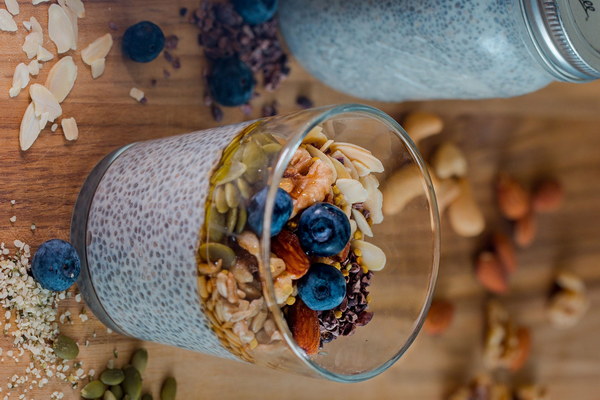Winter Nourishment Boosting Spleen and Lung Health with Seasonal Foods
Winter, with its crisp air and cooler temperatures, can take a toll on our immune system and overall health. Focusing on nourishing foods that support the spleen and lung functions is essential during these months. Here’s a guide to help you incorporate winter-suitable foods into your diet to maintain a robust spleen and lung health.

The Importance of Spleen and Lung Health in Winter
In traditional Chinese medicine, the spleen and lungs are considered vital organs for maintaining health, especially during the colder months. The spleen is responsible for transforming and transporting nutrients, while the lungs are in charge of the respiratory system. A healthy spleen ensures the proper absorption of nutrients from the food we eat, and a robust lung function is crucial for fighting off winter colds and flu.
Winter Foods for Spleen and Lung Health
1. Root Vegetables:
Root vegetables like carrots, beets, and turnips are rich in beta-carotene and vitamin C, which are essential for a strong immune system. These nutrients help in protecting the spleen and lungs from seasonal challenges.
2. Ginger:
Ginger is a powerful herb known for its anti-inflammatory properties. It can help alleviate respiratory issues and support digestion, which is crucial for a healthy spleen.
3. Garlic:
Garlic is another immune-boosting food that can help fight off infections. Its allicin content is particularly effective in supporting lung health.
4. Quinoa:
Quinoa is a gluten-free grain that is rich in protein and B vitamins, which are beneficial for spleen and lung functions. It also provides essential minerals like magnesium and iron.
5. Almonds:
Almonds are packed with nutrients that support respiratory health. They contain vitamin E, which is an antioxidant that helps protect the lungs from free radicals.
6. Broccoli:
Broccoli is a cruciferous vegetable that is high in vitamin C and beta-carotene. These nutrients are crucial for maintaining a healthy spleen and lung function.
7. Chicken Soup:
Chicken soup is a traditional remedy for colds and flu, and for good reason. It contains anti-inflammatory properties and helps keep the respiratory tract clear.
8. Mushrooms:
Mushrooms, particularly shiitake and maitake, are known for their immune-boosting properties. They contain beta-glucans, which have been shown to enhance the body’s immune response.
9. Green Tea:
Green tea is rich in antioxidants and can help protect the lungs from oxidative stress. It also has a calming effect, which can be beneficial for those with anxiety, a condition that can affect lung function.
10. Honey:
Honey has natural antibacterial and anti-inflammatory properties. It can be used as a sweetener in tea or as a spread on toast, providing a soothing effect for sore throats.
Incorporating Winter Nourishing Foods into Your Diet
To boost your spleen and lung health this winter, consider the following tips:
- Include a Variety of Root Vegetables: Roast or steam carrots, beets, and turnips to enjoy their full nutritional benefits.
- Add Ginger and Garlic: Use these herbs in your cooking or make a ginger-garlic tea to support your immune system.
- Go for Quinoa: Include quinoa in your salads, soups, or as a side dish.
- Snack on Almonds: Have a handful of almonds as a mid-morning or mid-afternoon snack.
- Enjoy Broccoli and Other Cruciferous Vegetables: Steam or sauté broccoli for a nutrient-rich side dish.
- Sip on Chicken Soup: Make a batch of chicken soup and enjoy it throughout the week.
- Incorporate Mushrooms: Use mushrooms in stir-fries, soups, or as a meat substitute.
- Drink Green Tea: Replace your usual drink with green tea to benefit from its antioxidants.
- Use Honey: Add a spoonful of honey to your tea or toast for a soothing and immune-boosting treat.
By incorporating these winter-suitable foods into your diet, you can support your spleen and lung health, helping you to stay well throughout the season. Remember, a balanced diet is just one aspect of maintaining good health; staying hydrated, getting adequate sleep, and exercising regularly are also important factors to consider.









